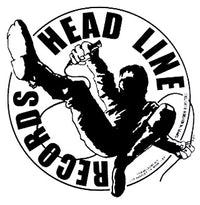If you’ve ever been captivated by the defiant spirit of punk music, then you’ll likely appreciate the rebellious, raw power of punk literature. Punk books are not only for music enthusiasts but for anyone who resonates with anti-establishment ideas, gritty self-expression, and cultural critique. From memoirs and biographies of iconic punk figures to gritty novels exploring themes of angst and defiance, the world of punk is as diverse and riveting as the punk movement itself. This article delves into the vibrant world of punk literature, exploring its roots, notable titles, and the way it captures the essence of the punk ethos.
The Origins of Punk Literature
The punk movement, which began as a musical rebellion in the 1970s, quickly grew into a larger cultural and social phenomenon. It wasn’t long before the ethos of punk music spilled over into literature. Punk literature became a medium to express frustration with societal norms, critique authority, and champion self-reliance and authenticity. In a world that felt increasingly commercialized and controlled, punk literature offered a voice for the disenfranchised and disillusioned, often through gritty prose, unfiltered emotion, and radical ideas.
These books became an essential part of the DIY (do-it-yourself) ethos that characterized the punk scene. Many were self-published or released by small, independent publishers, reflecting the anti-establishment spirit of punk. This underground, raw style of writing resonated with readers looking for something more genuine than mainstream literature. Authors of these books weren’t afraid to tackle tough subjects, portraying characters and stories that dealt with the harsh realities of life on the fringes.
Iconic Books and Their Influence
1. Please Kill Me
Authors: Legs McNeil and Gillian McCain
This iconic book, a staple on punk bookshelves, is an oral history of punk that captures the movement through first-person accounts of the musicians, writers, and fans who lived it. “Please Kill Me” combines interviews with famous punk figures like Iggy Pop, Patti Smith, and Lou Reed, giving readers an unfiltered view of the rise and fall of punk rock. It’s a gritty, at times chaotic, narrative that mirrors the nature of the punk scene itself.
2. England’s Dreaming by Jon Savage
Jon Savage’s England’s Dreaming is one of the most comprehensive accounts of the British punk scene. It explores the social, economic, and political factors that shaped punk in the UK, with a particular focus on the Sex Pistols. By analyzing the origins of British punk, Savage provides insight into how this movement became a response to a country in crisis. As one of the most respected books, England’s Dreaming sheds light on how punk became a voice for the disaffected.
3. Get in the Van
This raw, unapologetic memoir by Henry Rollins details his time as the frontman of the influential punk band Black Flag. Rollins shares his experiences of life on tour, dealing with poverty, fights, and the thrill of performing. Get in the Van is a firsthand look at the highs and lows of the punk lifestyle, capturing both the exhilaration and exhaustion of being on the road. It’s one of those punk literature that delivers an authentic portrayal of the punk experience, written by someone who lived it.
4. Just Kids by Patti Smith
Though not strictly a punk book, Patti Smith’s Just Kids provides an intimate look at the bohemian world of New York in the late 1960s and early 1970s, setting the stage for the punk revolution. Smith’s lyrical prose and reflections on her relationship with photographer Robert Mapplethorpe offer a poetic, yet raw, glimpse into the early days of punk culture. Just Kids is celebrated not only as a memoir but as a testament to the importance of art, friendship, and resilience.
5. Lipstick Traces
Marcus’s Lipstick Traces is an exploration of the punk movement’s roots, tracing it back to other rebellious movements throughout history, like Dadaism and Situationism. This punk book challenges readers to think about punk as more than just music, presenting it as part of a larger lineage of cultural resistance. Lipstick Traces offers a unique perspective on how punk fits into a broader tradition of countercultural movements, making it a thought-provoking read for anyone interested in the ideological roots of punk.
Themes and Styles in Punk Literature
These books cover a broad range of themes, but some stand out as especially resonant with the punk ethos:
-
Rebellion Against Authority
Many books depict characters who are at odds with societal norms, defying authority and questioning the status quo. The protagonists are often marginalized individuals who refuse to conform, embracing their own version of freedom and self-expression. -
Survival and Resilience
Punk literature frequently explores the struggles of characters who must navigate harsh, sometimes violent environments. There’s often a sense of survival against the odds, with characters enduring physical and emotional challenges that test their limits. -
Existentialism and Individualism
These books often focus on characters who grapple with questions of identity, purpose, and alienation. These books explore the complexities of selfhood and individualism, reflecting the introspective side of punk. -
Gritty Realism
Known for its unpolished style, punk literature is unapologetically raw. Rather than idealizing life, these books present a harsh reality filled with flawed characters, struggles, and the dark side of human nature. This realism resonates with readers who crave authenticity.
Conclusion
Punk books are much more than stories; they’re windows into a world that celebrates defiance, authenticity, and individuality. They capture the grit and intensity of punk culture, exploring themes that are still relevant and relatable today. Whether you’re interested in memoirs of punk legends, fictional tales of rebellion, or philosophical explorations of the punk ethos, punk books offer something for everyone who seeks to understand—or be inspired by—the punk way of life.
